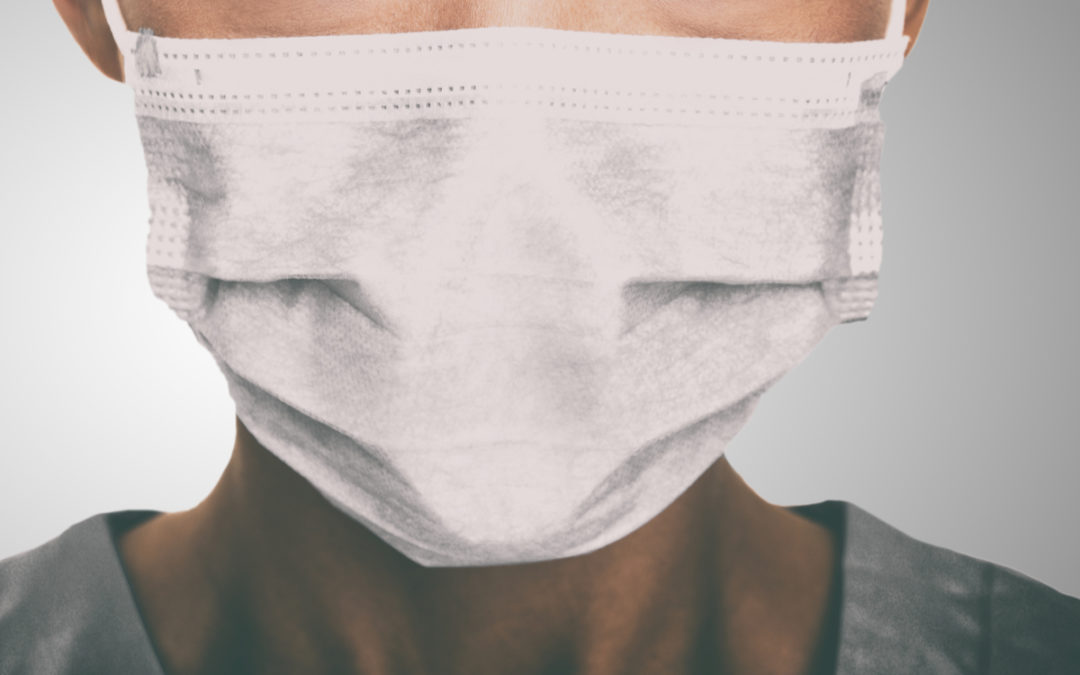Here’s a guest blog from a friend and colleague who practices Undersea and Hyperbaric Medicine and is also a Critical Care physician. I believe that she should remain anonymous for now. However, I was inspired by the emails and texts she has sent me and thought you would be, too. She’s sending me messages off the cuff – they are “raw” and not edited by her. However, I think that is best. She uses a lot of abbreviations and when I thought it was useful, I explained them in brackets. One day at the right time, I will tell you who she is and we can all thank her properly for her courage and commitment. Here are her COVID-19 Diaries – uncensored.
–Caroline
Ondine’s Curse
According to German folklore, Ondine was a nymph who fell in love with a man. When she found out that he was unfaithful to her, she cursed him with the inability to breathe at night whenever he fell asleep. This is often described in sleep medicine as congenital or central sleep apnea. One of the most common symptoms reported by hospitalized patients with COVID-19 (and by my physician colleagues who have fallen ill with it), is that the nights are the worst in terms of difficulty breathing. On rounds one morning I asked one of the younger male COVID-19 patients (not intubated, obviously) how his night was and he said he didn’t sleep well because at night he cannot breathe strongly enough to live. Fortunately he got better after a few days. A colleague with COVID-19 tells me that the significant myalgias are also worse at night. More patients require intubation during the nighttime than the daytime. It may be that this virus unveils even the slightest degree of sleep apnea. In the average American, who tends to be on the heavy side, some unrecognized sleep apnea is not uncommon. Or maybe there is some circadian or chronobiology aspect to the virus that we don’t understand.
At Long Last, Some GOOD News
After yesterday’s visitation by the Passover Angel of Death, today I was not particularly enthused to go into the ICU. I dreaded another day of losing patients to pulmonary emboli and cardiac collapse. What transpired instead was a friendly competition with the other intensive care team to see who can extubate the most patients. For the first time, we are competing over who has the most patients getting better. So far, the other team is winning. They generously tell me that it’s because my patients are sicker. Dr. Not-Me extubated 3 patients today, whereas I extubated only 2 patients.
I carry a big fat dry erase marker around with me and use the glass ICU doors as my giant “white board” to draw vent settings and sketch out physiology when I teach the residents about hypoxemia and V/Q (ventilation perfusion) mismatch. Today I wrote on the main glass doors, Dr. Not-Me- 3, Dr. Me-2. Everyone looks at those numbers and is encouraged by the fact we have extubated FIVE people. This is the first time we have successfully gotten patients extubated. COVID patients send 9-20 days on a ventilator. Because COVID-19 patients are so difficult to extubate, it has pushed us to avoid intubation more than we did in the beginning. The discharges to home are picking up from the non-ICU side of the hospital as well. Everyone is feeling a little optimistic that we’ve seen the peak and the numbers will begin to drop. In the same breath (sorry, bad pun…), we’ve learned that we know nothing about this virus and what it does to human physiology. We have been humbled by its capabilities to wreak havoc on the lungs and other organ systems.
The generous and amazing food that keeps coming to the ICU has been a constant reminder that we’re not being forgotten by our loving community. Cupcakes, burgers, pizza, pasta, milkshakes and cookies abound. Unfortunately, the pressure from the tight N95 masks and the high-energy lunches have caused all of us middle aged folks to develop pimples — big juicy ones on our chins, noses, and cheeks — as if we are all going through puberty together.
The Camaraderie of Shared Experience
We have been through a lot together. There is a camaraderie in these shared experiences that will bond us together forever. Those of us who jumped in and fought this disease, fought to keep patients alive and overcame our own fear of exposure share a unique bond. We appreciate each other, and I think will hold each other in our hearts forever. When this is all over, I plan to write a love letter to the nurses and therapists who held patients’ hands as they died, extubated the ones who got better and taught them to breathe again, and tied my PPE gown closed for me as I hastily gowned up to see a patient. I couldn’t ask for better, truer, finer people to work with than these heroes of the ICU.

Dr. Fife is a world renowned wound care physician dedicated to improving patient outcomes through quality driven care. Please visit my blog at CarolineFifeMD.com and my Youtube channel at https://www.youtube.com/c/carolinefifemd/videos
The opinions, comments, and content expressed or implied in my statements are solely my own and do not necessarily reflect the position or views of Intellicure or any of the boards on which I serve.




These are amazing!! Thank you so much for providing these to all of us.